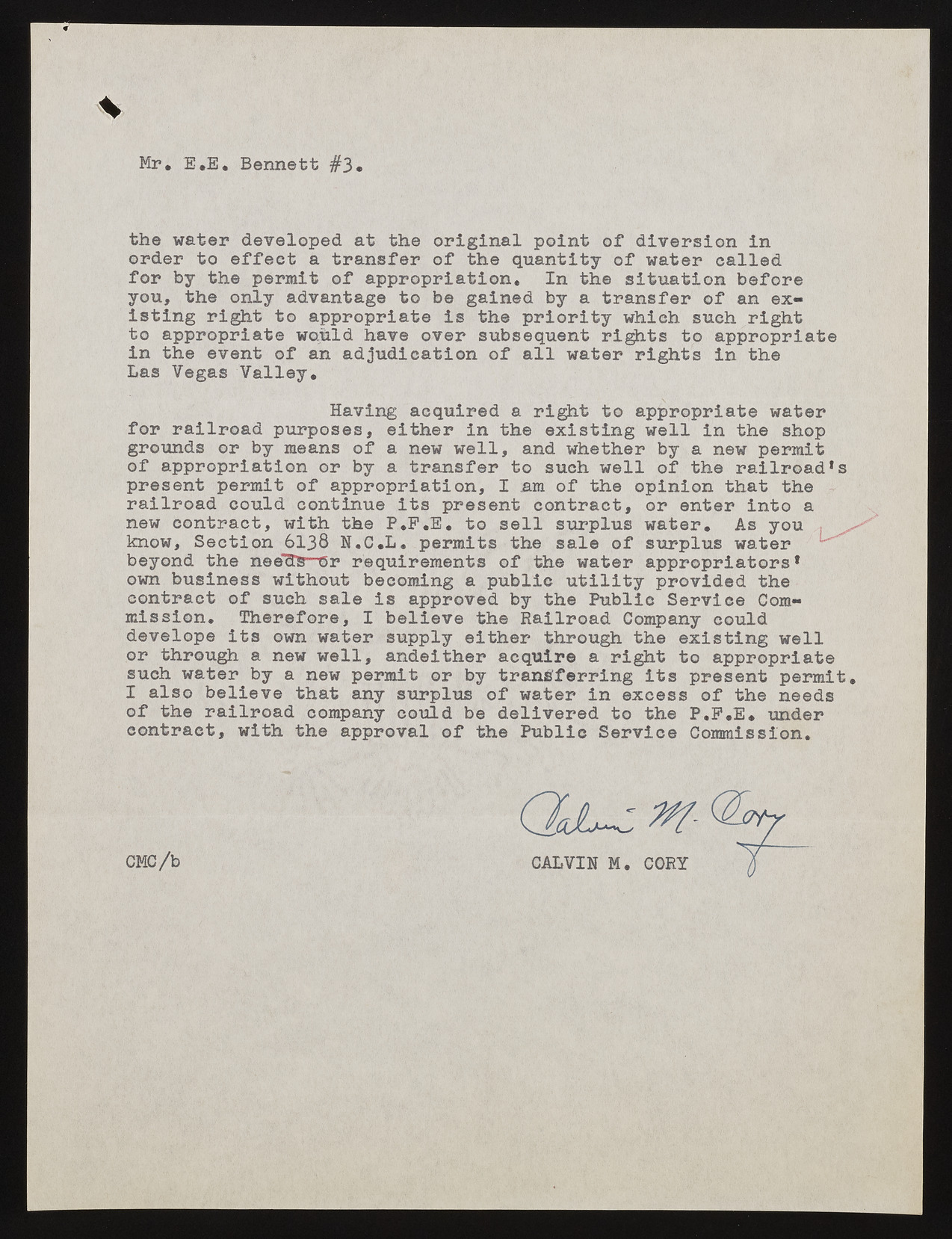Copyright & Fair-use Agreement
UNLV Special Collections provides copies of materials to facilitate private study, scholarship, or research. Material not in the public domain may be used according to fair use of copyrighted materials as defined by copyright law. Please cite us.
Please note that UNLV may not own the copyright to these materials and cannot provide permission to publish or distribute materials when UNLV is not the copyright holder. The user is solely responsible for determining the copyright status of materials and obtaining permission to use material from the copyright holder and for determining whether any permissions relating to any other rights are necessary for the intended use, and for obtaining all required permissions beyond that allowed by fair use.
Read more about our reproduction and use policy.
I agree.Information
Digital ID
Permalink
Details
More Info
Rights
Digital Provenance
Publisher
Transcription
Mr. E.E. Bennett #3. the water developed at the original point of diversion in order to effect a transfer of the quantity of water called for by the permit of appropriation. In the situation before you, the only advantage to be gained by a transfer of an existing right to appropriate is the priority which such right to appropriate would have over subsequent rights to appropriate in the event of an adjudication of all water rights in the Las Vegas Valley. Having acquired a right to appropriate water for railroad purposes, either in the existing well in the shop grounds or by means of a new well, and whether by a new permit of appropriation or by a transfer to such well of the railroad’s present permit of appropriation, I am of the opinion that the railroad could continue its present contract, or enter into a new contract, with the P.F.E. to sell surplus water. As you , know, Section 6138 N.C.L. permits the sale of surplus water beyond the neeYTSr-pr requirements of the water appropriators * own business without becoming a public utility provided the contract of such sale is approved by the Public Service Commission. Therefore, I believe the Railroad Company could develops its own water supply either through the existing well or through a new well, andeither acquire a right to appropriate such water by a new permit or by transferring its present permit I also believe that any surplus of water in excess of the needs of the railroad company could be delivered to the P.F.E. under contract, with the approval of the Public Service Commission. CMC/b CALVIN M. CORY

